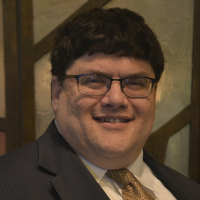
Author: Rabbi David B. Cohen
Published in the November 2016-January 2017 Sinai News
Every election season has words that are transformed from the innocuous to meaning laden. Remember past examples like “binders,” “hockey moms,” or, of course, “chad?” This election brought a number of terms to the forefront of significance: “Cheeto” was raised several notches when it was used to describe one nominee; “deplorable(s), basket of” was transformed into both a term of derision and a badge of honor; “octopus” became linked with groping hands; and “rigged,” which after this election season will be used to describe anything whose outcome we don’t like.
Yes, the election is over. Now is when the work begins.
And there is a lot of work to do. Over the past decade the quality of our civil discourse has plummeted. Many felt that “political correctness” had no purpose and so returned to saying out loud what they had all along been thinking. The divisions go far beyond allegiance to a particular party or ideology. As the New Yorker’s George Saunders put it:
“From the beginning, America has been of two minds about the Other. One mind says, be suspicious of it, dominate it, deport it, exploit it, enslave it, kill it as needed. The other mind denies that there can be any such thing as the Other, in the face of the claim that all are created equal.”
Needless to say, Judaism favors the latter approach. A Jewish set of ethics begins with the obligations we have to others. Created in God’s image, we have an obligation to recognize the divine spark in others and to nurture it. Born of Adam and Eve, all people are one family. Our common lineage means we are all equal.
How can we return to a state, as Lincoln put it after the civil war, in which we “have malice toward none?”
First, we should embrace the virtue of Derech Eretz. Derech Eretz is nothing less than a system for fulfilling our basic responsibility as human beings, to be a mentsch. What is Derech Eretz? To speak kindly, give praise, respect others opinions, respect their time and space, be considerate, watch your mouth, think the best, listen and pay attention, no road rage. Instead of raising your hand or your voice, Derech Eretz insists you raise your own dignity and the self-esteem of others. Behave as though the world depends on your humanity and decency. Conduct yourself as if every interaction with others is an opportunity to bring holiness into the world.
Second, no matter whom you voted for it is time to pause, take stock of what is happening, step back on the rhetorical precipice and begin to restore an environment in which political differences do not destroy our shared identity. That means that, for some, recognizing the level of distress in America drives an emotional response to which a rational response is misdirected, which is why people feel they have been talking past each other.
Last, we should keep in mind the words of Israeli poet Yehudah Amichai, who wrote:
From the place where we are right
Flowers will never grow
In the spring.
The place where we are right
Is hard and trampled
Like a yard.
But doubts and loves
Dig up the world
Like a mole, a plow.
And a whisper will be heard in the place
Where the ruined House once stood.
May 5777 be a year of reconciliation.
